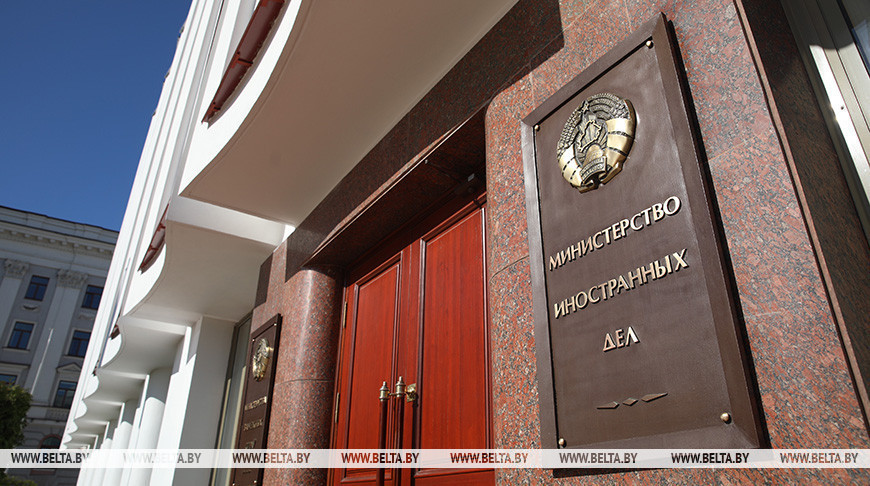EU bans export of second-hand clothing to Belarus. MFA explains why this is a good thing

The European Union, seeking to deal another "crushing" blow to the economy of Belarus, has recently adopted a new package of sanctions. Among them is a ban on the supply of used or second-hand clothes from the EU. Press secretary of the Ministry of Foreign Affairs Anatoly Glaz commented to BelTA on how Belarus has taken this measure and why it can be considered a boon for the country.
"This step is another confirmation that the European Union is absolutely not guided by humanistic principles as it imposes sanctions and applies restrictions on socially significant goods that are in demand, including among low-income citizens," he said. “Meanwhile the EU, at various levels, declares its commitment to the ‘social principles’ of sanctions. But this step once again confirms the double standards of our western neighbors. We do not rule out that this decision was made with the active lobbying of the ‘self-exiled opposition’ which simply does not know what other prohibitions to apply to Belarus in order to undermine its economy and cause social unrest."
According to expert estimates, until now the share of second hand goods in the total consumption of clothing was about 35%. They were sold by about 2,800 retail facilities, including online stores.
According to the Belarusian Statistical Committee, used clothing worth about $60-80 million is imported to Belarus annually, up to $70 million of it is sold and the rest is re-exported.
The Eurasian Economic Union applies a low tariff on "second hand" imports - 15% of the customs value, but not less than €0.18 per 1kg, which makes it possible to import them cheaply. Taking advantage of this opportunity, some Belarusian businessmen made good money on trade in used clothes. When importing goods into Belarus, they declared goods as "second hand" (or at a reduced cost) in order to pay customs duties at the minimum tariff.
Once, at the Brest customs, a truck driver accidentally filed authentic (not fictitious) documents that underestimated the value of "second hand" goods by more than 2.5 times.
In 2023, Belarus’ State Customs Committee together with the Belarusian state light industry Bellegprom concern carried out selection inspections of four trucks carrying second-hand goods. The inspections revealed that about 80% of the truckload were new goods.
The quality of used clothes sold in Belarus also raises questions. All too often these clothes are not just of poor quality, but can also be dangerous to health. It is no secret that such clothes undergo pre-sale disinfection. Formaldehyde is often used for this purpose. It is a toxic substance that, if inhaled, can enter the body and negatively affect reproductive function, the central nervous system, affect the respiratory tract, skin and eyes.
For the EU and the USA, exporting second-hand goods to other countries is a profitable and convenient way to get rid of old stuff instead of investing effort and money in their proper disposal at home. Why bother when you can simply resell them?
The EU ban on the export of second-hand products is seen as a good thing in Belarus, Anatoly Glaz said. “It will protect the health of our citizens from harmful substances. The EU will have to take a more serious approach to disposal of their used goods,” he said.
Moreover, many countries proactively take such steps to protect their market and their people. This is especially true for the countries with well-developed light industries. They understand perfectly well that second-hand garments will serve for a limited period of time and will quickly create an additional burden on the economy, the environment, and people's health. According to the WTO, every third of 85 countries has introduced some kind of ban on the import of second-hand goods.
Belarus is fully confident that the EU decision will not entail any serious social consequences and will not leave impact the employment and labor market in any way.
“The EU, taking such a decision, did not take into account the fact that Belarus has a well-developed light industry. Its goods are on par with the world’s popular brands in quality, have all the necessary safety certificates, and are sold at reasonable prices,” the spokesman of the Belarusian ministry of foreign affairs said. Moreover, Belarus can import goods from friendly countries.
It is expected that the slowdown in the second-hand retail trade will give a boost to the sales of domestic light industry goods in the country.
“The EU ban on the export of second-hand goods to Belarus will pave the way for further development of national production, cooperation with friendly countries and help reduce imports of unsafe products from a number of European countries and the United States,” Anatoly Glaz said.


